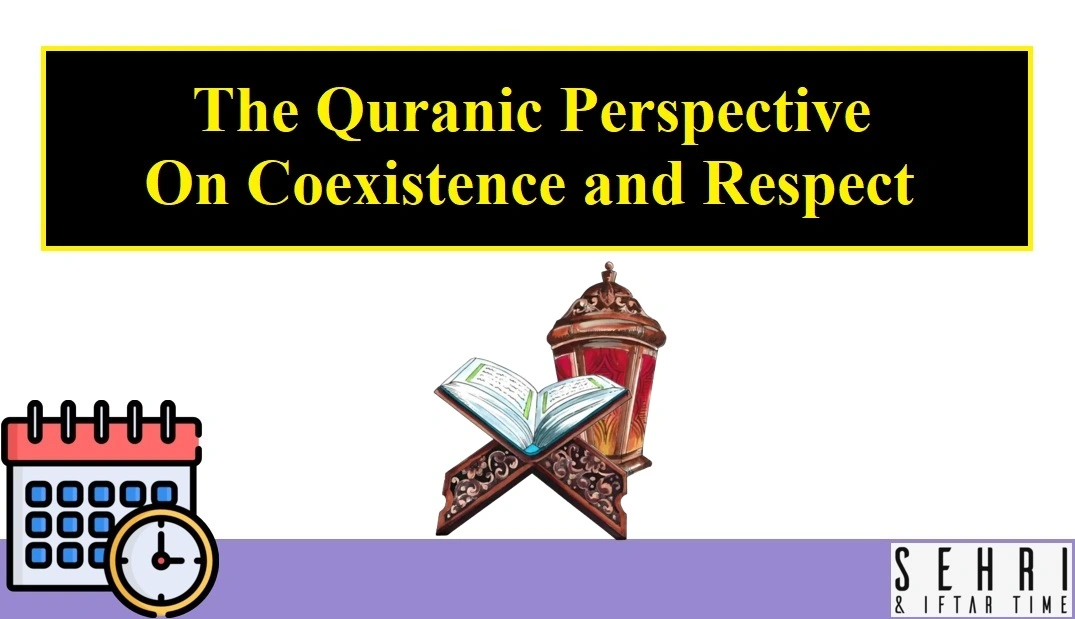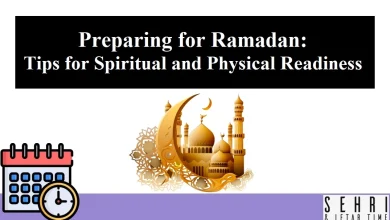The Quranic Perspective on Coexistence and Respect
The Quranic Perspective on Coexistence and Respect [Tips]

The Quranic Perspective on Coexistence and Respect: In a world marked by diversity and varying worldviews, the principles of coexistence and respect have never been more essential. The Quran, the holy scripture of Islam, offers profound guidance on these matters, emphasizing the importance of harmony, mutual respect, and understanding among people of different beliefs and backgrounds. This article explores the Quranic perspective on coexistence and respect, illustrating how these values are deeply rooted in Islamic teachings and are pivotal for fostering peace in society.
The Universal Message of the Quran
The Quran addresses all of humanity, transcending boundaries of race, ethnicity, and religion. Its message is universal, emphasizing the shared origins of humankind. In Surah Al-Hujurat (49:13), Allah states:
“O mankind, indeed We have created you from male and female and made you peoples and tribes that you may know one another. Indeed, the most noble of you in the sight of Allah is the most righteous of you. Indeed, Allah is Knowing and Acquainted.”
This verse underscores a key principle of coexistence: diversity is a deliberate and beautiful aspect of creation, intended to encourage interaction and mutual understanding. The emphasis is not on uniformity but on recognizing and respecting differences, with righteousness—not wealth, lineage, or power—being the measure of true honor.
Freedom of Belief and Choice
The Quran unequivocally upholds the principle of freedom of belief, a cornerstone of coexistence. In Surah Al-Baqarah (2:256), it declares:
“There shall be no compulsion in [acceptance of] the religion. The right course has become clear from the wrong.”
This verse affirms that faith must be a matter of personal conviction and choice, free from coercion. This principle lays the foundation for religious tolerance and mutual respect, as individuals are granted the autonomy to follow their chosen paths.
Respecting the Sanctity of Human Life
Another essential Quranic teaching that promotes coexistence is the sanctity of human life. Surah Al-Ma’idah (5:32) states:
“Whoever kills a soul unless for a soul or for corruption [done] in the land – it is as if he had slain mankind entirely. And whoever saves one – it is as if he had saved mankind entirely.”
This verse highlights the immense value of each human life, advocating for the protection and preservation of all individuals, regardless of their faith or background. By equating the loss or saving of a single life with that of all humanity, the Quran instills a deep sense of responsibility towards one another, fostering a culture of care and coexistence.
Dialogue and Engagement
The Quran encourages constructive dialogue and engagement as a means to resolve differences and build bridges. Surah An-Nahl (16:125) advises:
“Invite to the way of your Lord with wisdom and good instruction, and argue with them in a way that is best.”
This guidance reflects a profound respect for differing opinions and underscores the importance of civility and wisdom in interactions. Rather than resorting to hostility or confrontation, the Quran advocates for respectful communication, rooted in kindness and understanding.
Justice and Fairness as Pillars of Coexistence
Justice is a fundamental value in Islam and a prerequisite for coexistence. The Quran repeatedly emphasizes the importance of fairness, even towards those who may hold opposing views. Surah Al-Ma’idah (5:8) proclaims:
“O you who have believed, be persistently standing firm for Allah, witnesses in justice, and do not let the hatred of a people prevent you from being just. Be just; that is nearer to righteousness.”
This verse underscores the need to rise above personal biases and enmities to uphold justice. It is through such unwavering commitment to fairness that societies can nurture trust and harmony among diverse groups.
Compassion and Kindness Towards Neighbors
The Quran and the teachings of Prophet Muhammad (peace be upon him) emphasize the importance of compassion and kindness towards neighbors, regardless of their faith. The Prophet said:
“He is not a believer whose neighbor is not safe from his harm.”
This principle extends beyond physical safety, encompassing emotional and social well-being. It reflects the Quranic ethos of living peacefully with others and contributing positively to their lives.
Practical Implications in Today’s World
The Quranic principles of coexistence and respect hold profound relevance in today’s interconnected yet divided world. Amid rising intolerance and polarization, these teachings offer a blueprint for fostering mutual respect and understanding. Practical steps derived from these principles include:
- Promoting Interfaith Dialogue: Engaging in open and respectful conversations to understand differing perspectives and find common ground.
- Championing Social Justice: Advocating for equitable treatment of all individuals, regardless of their background.
- Combating Prejudice: Actively challenging stereotypes and discrimination to build inclusive communities.
- Nurturing Empathy: Practicing kindness and compassion in daily interactions, recognizing the shared humanity in all.
Conclusion:
The Quranic perspective on coexistence and respect is a testament to Islam’s emphasis on peace, harmony, and mutual understanding. It calls on individuals to embrace diversity, uphold justice, and engage with others in a spirit of kindness and respect. By embodying these values, societies can transcend divisions and build a future rooted in unity and shared purpose. In the words of the Quran (Surah Al-Anfal, 8:61):
“And if they incline to peace, then incline to it [also] and rely upon Allah. Indeed, it is He who is the Hearing, the Knowing.”
Let these timeless teachings inspire us to forge a world where coexistence and respect are not just ideals but lived realities.





